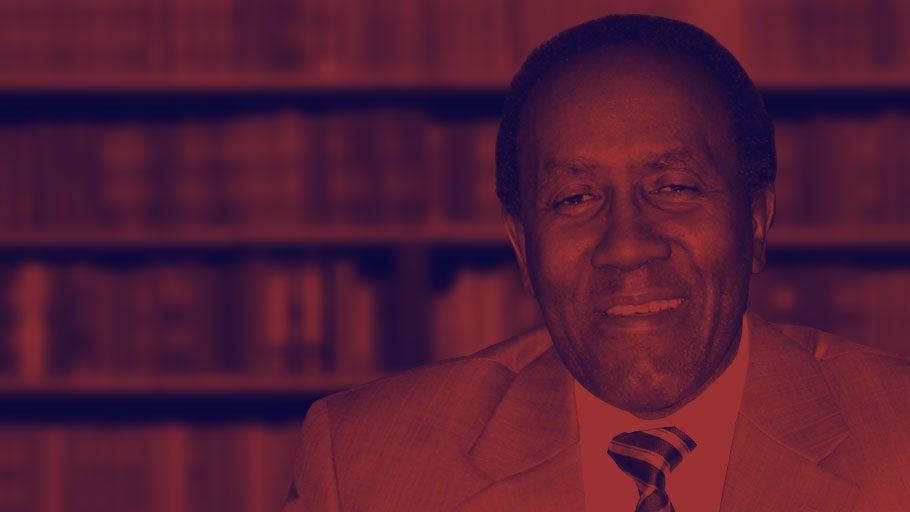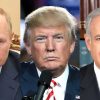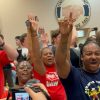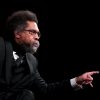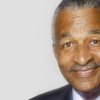9/30/15
Pope Francis came to the papacy under unusual circumstances. His predecessor, Pope Benedict, resigned because of failing health. Pope Francis is the first Pope from the New World chosen to lead the sprawling Catholic flock estimated at 1.2 billion people.
It was befitting that the Pope visited Cuba before making his whirlwind visit to America. Pope Francis served as a facilitator for the Cubans and Americans to restore diplomatic relations that were shattered for over fifty years.
Pope Francis’ six day visit to America is filled with symbolism. He first met with President Obama at the White House and praised him for his leadership on climate change. The Pope broke bread with the homeless and became the first Pope to address a Joint Session of the United States Congress.
In his visit to New York City, he visited Ground Zero and met with families who had lost loved ones at the World Trade Center on the 11th of September, 2001. Then the Pontiff met with school children in Harlem and poignantly requested that they pray for him. He visited St. Patrick’s Cathedral and subsequently administered mass to 20,000 at Madison Square Gardens. Before that mass, he spoke to world leaders at the United Nations.
On his visit to Philadelphia, the Pope met with families whose children had been abused by members of the clergy and other adults affiliated to the Catholic Church. He spoke to seminarians and to Bishops of the Catholic Church conveying his message of taking the gospel of Jesus Christ beyond the alter and the pews of the church.
In his papal magnanimity, he visited and spoke to one hundred prisoners at a correctional institution in Philadelphia. He impressed upon the incarcerated that all men are sinners and they were capable of turning their lives around. The visit to America was capped by his attendance and address to the World Festival of Families. Before making his departure to Rome, the Pope held mass with a throng of approximately one million people.
Pope Francis has emerged as a transcendental figure. He is committed to transforming the Catholic Church and he has exhorted the Bishops and the Deacons to avoid unnecessary dogma and open the doors of the church to all those who can be helped by the teachings of Christ. He recognizes that the church must go beyond formal rituals and forge bonds with the flock. The leaders of the church must be involved in the day to day struggles of the faithful and even non-believers.
Pope Francis’ speech to the Congress was impressively crafted. The address was embroidered by the lives of four exceptional Americans, Abraham Lincoln, Martin Luther King, Jr., Dorothy Day and Thomas Merton. Lincoln and King are well known to the American public. Lincoln saved the union and ended the scourge of slavery. Martin Luther King, Jr. expanded the American Dream and sought to make American society more inclusive. Dorothy Day was the founder of the Catholic Worker’s Movement and dedicated her life to fighting poverty and improving the spiritual and material working conditions of working people. Thomas Merton dedicated his life to living as a monk and fighting for the need for dialogue and reconciliation.
Both before Congress and at the United Nations, the Pope spoke forcefully about the need to preserve the planet. Climate change is real and humankind was running out of time to reverse the damage of green house cases. The Pope linked climate change to the need of establishing a more cooperative world.
At the Joint Session of Congress, he condemned those who profited from arms sales and that they had blood on their hands. Pope Francis is a voice for a more peaceful world. He spoke of the dire necessity for dialogue among nations and the eventual elimination of nuclear weapons.
What is of enormous significance is that the Catholic Church has been known for its absolutism. Pope Francis has not stepped back from those ecclesiastical principles but he sees the church as administering the teaching of Jesus Christ. This meant compassion for the most vulnerable and working for the abolition of extreme poverty.
The Pope had made it known long before his visit to America that the world had a special obligation to the refugees fleeing war in the Middle East. He beseeched America to welcome immigrants as we are all immigrants. He mentioned the need to live by the Golden Rule – to treat others as we would like to be treated.
The Pope extolled America to be in the forefront of a new world of compassion, not through militarism but by urging peace and reconciliation. The world is in need of non-partisan transcendental figures who constitute a moral force. By reconstructing the architecture of the Catholic Church, it makes the 1.2 billion flock fighters for the common good. Other religious leaders, like Ayatollah Khomeini could play a similar role in the world community rather than futilely chanting “Death to America”.
The world is not short of religious leaders. The Pope has created the necessary space for other religious leaders to bolster the moral arc of the universe rather than to be disciples of escapism. Pope Francis in his visit to Ground Zero in New York City brought together religious leaders of every faith. There is a role in the contemporary world for religious leaders. There is the need to step back from the brink and work towards creating a world of tolerance, compassion and reconciliation.

